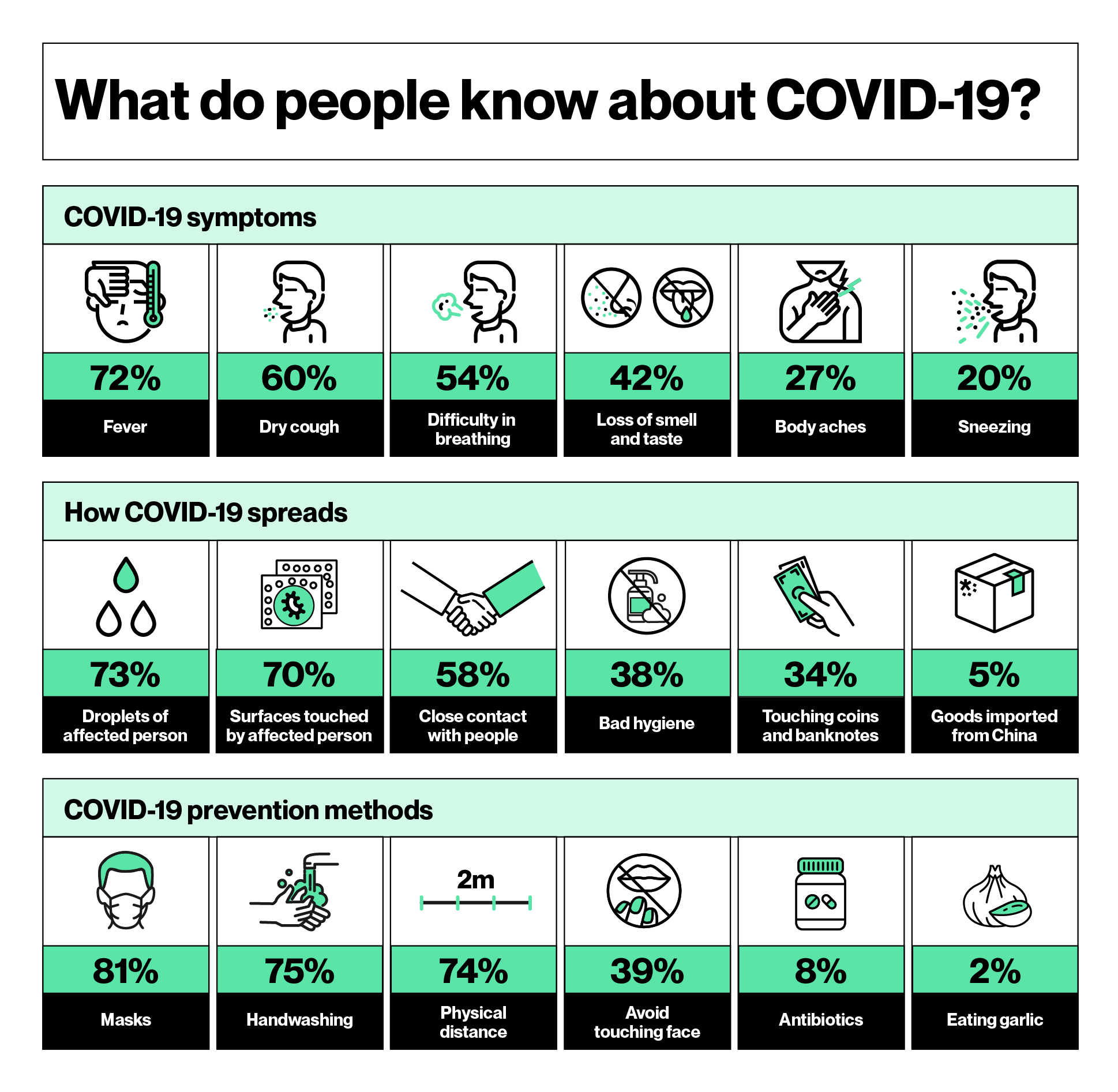Today in Lebanon, people’s trust in public institutions is declining, their fatigue is rising, and the economic anxieties grow with each passing day. What must it feel like to experience a pandemic under such circumstances? How do people’s access to information affect their perceptions of and behaviors around COVID-19? The UNDP Accelerator Lab in Lebanon sought to answer these questions through a rigorous research project on COVID-19 information, perceptions, and behaviors.
Setting the stage
In Lebanon, the COVID-19 pandemic is happening alongside many other crises. The country has been stuck in political deadlock for over a year following a popular uprising that started on October 17, 2019. This coincided with an economic collapse that has brought 50% of the population into poverty. With the country in economic freefall, people are contending with hyperinflation, dwindling purchasing power and limited access to currency. In this difficult environment, the first COVID-19 confirmed case was recorded on February 21, 2020. Soon thereafter, the government imposed strict measures, including a lockdown of the country from 15 March to 10 May. During this period, the number of cases remained relatively low.
To add yet another crisis, on August 4, a massive explosion happened at the Beirut Port. Considered the third biggest explosion in history, it left Beirut decimated. It also profoundly changed people’s relationship to the pandemic. Suddenly, the global mantra “stay home and stay safe” no longer made sense in a place where people’s homes had been destroyed, often with them inside. The home became a place of violence and destruction rather than safety and wellbeing.
As a result of the blast and in the absence of a national response plan, people were once again in close contact because of relief and rebuilding efforts. COVID-19 cases skyrocketed, and today, the average number has increased to 2500-3000 cases per day (with a total population of around 6.8 million). The political stalemate also continues, with no government yet formed since the resignation of the cabinet following the August 4 explosion.
The goal of this research was to collect data about how Lebanese residents access information about COVID-19 and their perceptions of and behaviors around COVID-19.
This was designed to generate both statistical and qualitative findings. The methodology consisted of a desk review, 384 phone surveys, 20 key informant interviews, and an ongoing online survey. These tools were developed in response to the challenges presented by conducting research during a pandemic, when fieldwork and data collection are severely constrained.
What did we learn?
We discovered that people’s relationship to the pandemic exceeded just health considerations. Instead, perceptions, practices, and access to information were linked to the political and economic conditions of the country. According to the respondents these factors have a direct impact on their daily life. We also found major differences in the results across different governorates and age groups, which confirmed that despite Lebanon's small size, a one-size-fits-all approach will not work.
Our research has revealed that people’s perceptions of and behaviors in response to COVID-19 are overdetermined. They result from the economic situation, regional and demographic diversity, and their perception of and trust in the government. These factors are intimately tied up in the information landscape in Lebanon, which shapes people’s perceptions, and, in turn, informs their behaviors.
The below infographic shares some of the most exciting, perplexing, and unexpected findings from this research. The information below is not exhaustive but rather highlights major findings in an accessible way.
Check back soon for our next update which will feature an infographic focused on COVID-19 within the information landscape.




 Infographic designed by Patil Tchilinguirian - Click Here to download PDF
Infographic designed by Patil Tchilinguirian - Click Here to download PDF

 Locations
Locations
